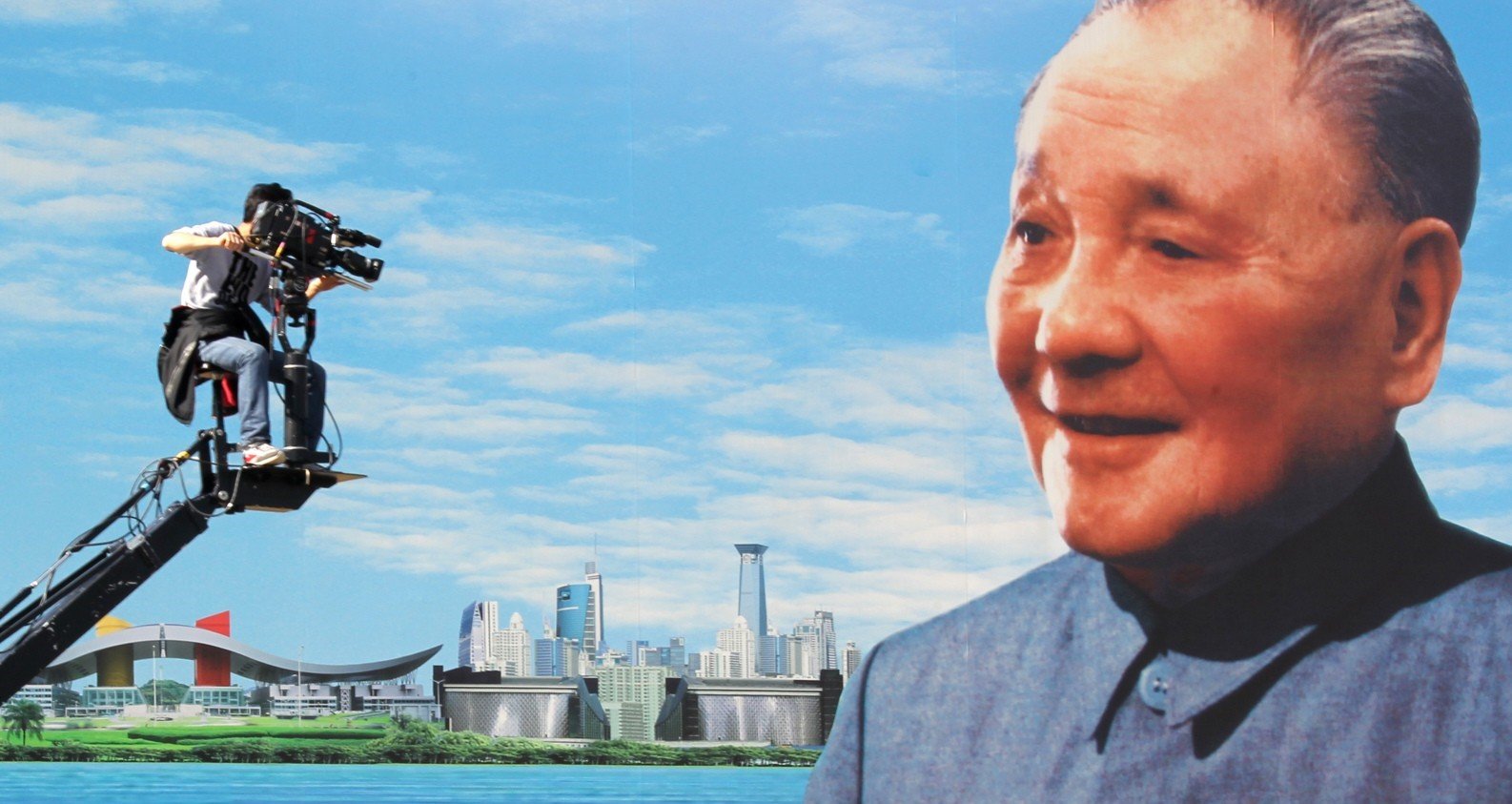

Jul
As mentioned in our article about Mao Zedong, an attitude shift with respect to the proverbial West started taking place near Mao’s death but it was a fairly… well, let’s call it modest one. Not only was it modest, the reasons behind it were less related to the intention of embarking on a journey toward high economic growth and more geopolitical in nature, pertaining primarily to a political juggling act between China’s deteriorating relationship with the USSR and its improving one with the US (even if the improvements were marginal).
After Mao’s death, China itself wasn’t convinced it needs to move toward a Western-style market economy system, with there being two factions who fought for power: the rigid idealists on the one hand (Mao’s wife included) and the reformers on the other, led by Deng Xiaoping. It’s worth noting that even during Mao’s regime, there were leaders such as Zhou Enlai who exhibited a more pragmatic approach, so there have been forces (albeit arguably timid ones) that wanted China to experience a “paradigm shift” moment right from the beginning.
Still, it was only after Deng Xiaoping came to power (following a brief period with Hua Guofeng at the helm) and the other faction was silenced (thanks, in no small part, to the imprisonment of its leadership, the so-called Gang of Four) that China was able to truly unshackle itself from ideological rigidity and unleash its economic potential.
And, indeed, that’s precisely what happened as of 1978, with Deng Xiaoping vowing to modernize China through a combination between maintaining the Communist Party of China at the helm but “tweaking” things ideology-wise so as to move toward many market economy elements. Socialism with Chinese characteristics, in other words, a system that may have very well briefly been in Mao’s mind in the early 50s but which wasn’t implemented until Deng Xiaoping started promoting his now-famous Four Modernizations:
- On the one hand, the agriculture sector of China was rather subsistence-oriented and nowhere near efficient. When one thinks about “modernizations” in this sector, it’s important to note that this even meant providing the absolute bare minimum necessities such as electricity. Furthermore, by allowing private initiative in the agriculture sector, the creative energy and ambition of the average farmer ended up being unleashed
- As far as China’s industrial sector is concerned, state-owned companies were given what can only be described as game-changing freedom. Once again, bringing things more firmly in market economy territory (even if, yes, timidly at first), enterprises were even allowed to embrace more meritocratic systems such as using profits to increase wages, provide bonuses whenever necessary and so on
- Moving on to the technological front, the idea of actually being willing to learn from the West was actually promoted. If you’ve read our “brief economic history of China” article, you’ll know that reluctance when it came to transfers of technology from other nations was not just common during the Mao Zedong regime, it was a hallmark of China for literally thousands of years. Simply put, China always had the habit of considering itself superior to other nations to such a degree that there was no way it would actually stand to benefit from actually learning from them. As of 1978, this kept changing to such a degree that not only was China willing to accept transfers of technology, it “learned” so much from the West that it is now accused of Intellectual Property theft by many of the world’s top economies
- Of course, defense. Needless to say, transfers of technology have been quite a bit more difficult in this area than others due to the reluctance of the USSR on the one hand and Western powers such as the US on the other to share (too much) military technology with China. Still, whatever reform could be done was more than necessary in this sector as well, a sector in which China never really had the habit of excelling in
The next wave of leaders after Deng Xiaoping kept China on its post-1978 course (but more on them in future articles) and it would definitely not be an overstatement to attribute many of China’s modern-day victories (its GDP Per Capita that is approximately 25 times greater than it was toward the end of Mao’s regime, the World Bank-defined poverty rate going from almost 90% into single-digit territory, its impressive industrialization as well as infrastructure investments and so on) to Deng Xiaoping’s wisdom and pragmatism.

2 Comments
[…] term of Jiang Zemin, the let’s say successor of Deng Xiaoping, is fascinating to observe not because he has a similar legacy to put on the table (hint: he […]
[…] case, the fact that agriculture went from representing roughly 50% of China’s GDP prior to Deng Xiaoping’s 1978 reforms to less than 10% at this point, with its industrial sector increasing by more than 200% and […]